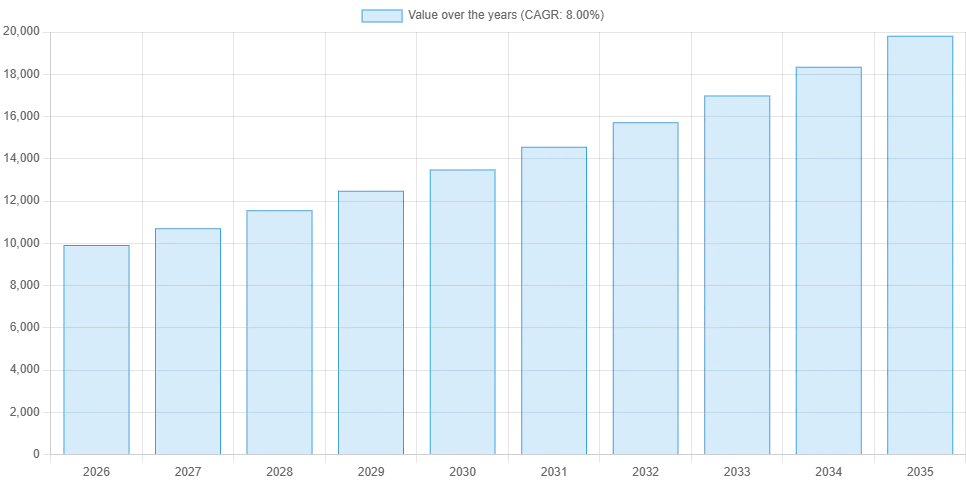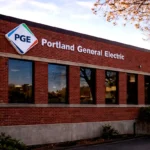The Transportation Services market is experiencing robust and sustained growth, driven by economic, technological, environmental, and societal factors. This dynamic industry connects people, goods, and ideas globally.
Transportation Services Market
The approximate decision of the Techgolly market analysis team is that the global transportation services market was valued at least USD 9.9 trillion in 2026 and is projected to reach USD 19.82 trillion by 2035. Growth will continue at a compound annual growth rate (CAGR) of 6% to 8% from 2026 to 2035.

Reasons for Market Growth
The market’s sustained growth results from multifaceted forces, ranging from urbanization and population growth to technological advancements and environmental concerns. The key drivers behind the growth of the Transportation Services market are discussed below.
Urbanization and Population Growth
As more people move to urban areas, the demand for public transportation, ride-sharing, and last-mile delivery services increases. Urbanization drives the need for efficient and accessible transportation options. A growing global population means more people need transportation services for daily commutes, leisure activities, and business travel.
Economic Development and E-commerce
Economic growth leads to increased trade, commerce, and tourism, all of which require robust transportation networks to move goods and people. Companies like Uber, Lyft, and Airbnb have introduced disruptive business models that have reshaped transportation services and created new market opportunities. E-commerce has led to a surge in demand for delivery services. Consumers expect quick and reliable transportation for their online purchases.
Technological Advancements and Infrastructure
Innovations like ride-sharing apps, autonomous vehicles, electric vehicles, and real-time transportation apps have transformed the industry, making transportation more convenient and efficient. Investment in transportation infrastructure, such as roads, bridges, ports, and airports, is critical for expanding transportation services and supporting economic growth. Aging transportation infrastructure in many regions necessitates updates and renovations, creating opportunities for construction and modernization projects.
Environmental Concerns and Regulatory
Concerns about climate change and air quality have pushed for more sustainable transportation options, such as electric vehicles, public transit, and biking. Governments worldwide are implementing regulations to improve transportation safety, reduce emissions, and promote sustainable practices, which can drive innovation and investments in the industry.
Consumer Demand and Globalization
Modern consumers value convenience and expect on-demand transportation options, leading to the growth of ride-sharing, bike-sharing, and micro-mobility services. International trade and business expansion have increased the need for efficient global transportation networks, including air and sea cargo services.
Pandemic and Changing Work Patterns
The COVID-19 pandemic accelerated the adoption of contactless delivery services, leading to online food delivery, e-commerce, and healthcare transportation growth. Remote work and flexible schedules have altered commuting patterns, leading to new transportation demands, such as micro-mobility options and remote work hubs.
Sustainable Transportation Goals
Many governments and organizations are setting ambitious sustainability targets, such as the adoption of zero-emission vehicles and reduced congestion, which drives investments in sustainable transportation solutions.
Key Market Players
The major transportation services vendors are FedEx Corporation, A.P. Moller-Maersk A/S, Guangzhou Metro, United Parcel Service Inc., Deutsche Post AG, Air France-KLM S.A., Madrid Metro, American Airlines Group, MTR Corporation, China State Railway Group Co. Ltd., Deutsche Bahn AG, Russian Railways, Seoul Metro, and Yusen Logistics Co. Ltd.
Conclusion
The Transportation Services market stands at the precipice of transformative growth, driven by a convergence of economic, technological, and environmental factors. Based on the comprehensive analysis of the Transportation Services market, it is evident that the sector is poised for significant growth driven by urbanization, technological advancements, and shifting consumer demands. Adapting to these changes will be crucial for stakeholders aiming to capitalize on emerging opportunities and address the challenges of a dynamic global marketplace.





